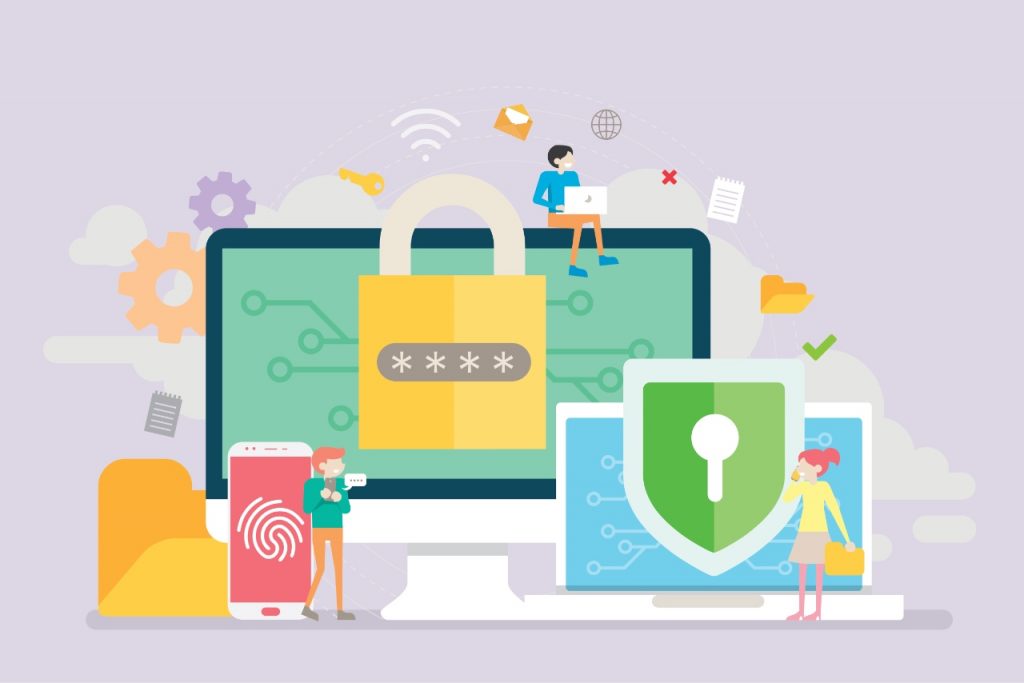This thought can be discouraging for the average Internet user, but don’t worry. These next four tips should give you a head start in regaining a sense of online safety.
Consider What Social Media Means to You
Do you use it for work? Keeping up with the news? Or just to see what friends are up to and scrolling through memes and cat videos? Whatever the case is, we’re sure you don’t want the entire world snooping through your personal info. Think about how important social media is to your daily life and consider whether it’s worth keeping. Deleting those accounts may be the best choice if you care about your privacy (and your productivity, let’s be honest). Then again, Facebook cookies can even track users that don’t have an account. You can stop this by:
Using an ad-blocker – uBlock Origin is a great one, especially because it has no “acceptable ads” program and uses very few device resources. Be wary of the similarly named “uBlock” which isn’t related to Origin and is actually unsafe Installing a script-blocking add-on such as uMatrix – it has a bit of a learning curve and could be a bit overkill, but it does the job splendidly, especially in tandem with uBlock Origin Using a privacy-focused browser like Brave or Tor
These are all great ways to block privacy-invasive cookies, annoying ads, pop-ups, as well as scripts that try to bypass those protections. Tor even suppresses browser fingerprinting, which websites use to single you out (to a frighteningly accurate degree), based on a myriad of browser and system-related variables. If you absolutely have to use social media, then at least manage your privacy settings with this guide for the most common services. Also, consider sharing fewer (or no) private details online (such as checking in at bars, holiday photos, and so on)
Take Care of Your Passwords
According to a 2019 report by Verizon, weak and re-used passwords account for 80% of hacking-related incidents. The mark of a good password is that it’s randomized and impossible to just “guess.” If yours contains any small piece of identifying information (such as a birthday or the name of someone you know), then it’s pretty easy for hackers to discover the rest of it. Use a password manager to create strong, randomized passwords for all your accounts and store them offline (meaning hackers can’t get to them as easily). Remember; don’t re-use them for any other accounts either. Consider setting up two-factor authentication on all of your accounts too, for an extra security step you won’t regret. Be wary of phishing scams that may try to steal your login information as well. No use having a strong password if you just hand it over to cybercriminals afterward. And speaking of cybercrime…
Get a Good VPN
A Virtual Private Network (VPN) encrypts all the data passing through your device while you’re online. Basically, encryption “locks” your data with an encryption key, making it look like gibberish to outsiders without the key. Remember all those people after your data? Well, they can’t read it anymore. ISPs can’t sell your browsing history to advertisers; hackers can’t steal your payment info if you use free Wi-Fi often, and governmental agencies won’t be able to spy on you. When you connect to a VPN server, your public IP address is hidden and the server’s IP is used instead. This means nobody can trace your location based on your IP either. Be careful which VPN you pick, though. “Free” VPNs usually have aggressive advertising, contain harmful malware, or the providers log your browsing activity and sell it to third parties themselves. They need to pay the bills somehow. So don’t leave your privacy up to chance just to save a few dollars. All the top VPNs make it absolutely clear that they keep no logs, some of which were even audited by independent agencies. After all, what’s the use of preventing your ISP and the NSA from logging your activity if your VPN provider is going to do that instead?
Be Wary of Public PCs
Public computers aren’t as common as in the days of Internet cafés. But they’re still around at hotels, libraries, or in shopping centers and they’re useful in a pinch. Just keep in mind that they’re considered a privacy nightmare. For one, there are small devices called keyloggers that do exactly what their name implies – log your keystrokes hoping to capture sensitive data, usually log in and payment info. Since it’s a piece of hardware, it can’t be detected by anti-malware like software keyloggers. Assuming the public computer even has anti-malware installed. Check all USB slots for any suspicious devices, even if it looks like a mere USB drive, and contact the local staff to be sure. Another public danger is shoulder surfing. Anyone can peek at what you’re doing online, or what login info you’re typing. You’re better off not logging into anything on public computers anyway (especially banking and email accounts) – you never know if the system is compromised. Clear your browsing history, delete any cookies, the browser cache, autofill data, and exit the browser once you’re done using the PC. Using Incognito mode (or private browsing) is also a good idea. Finally, a more hi-tech version of shoulder surfing is simply pointing a camera at your screen or keyboard to see what you’re doing. Even a rogue employee could set up a webcam in a convenient spot to steal customer data, and nobody would suspect a thing until it’s too late. Keep these tips in mind, practice due diligence, and you should have a much safer, private online experience.
